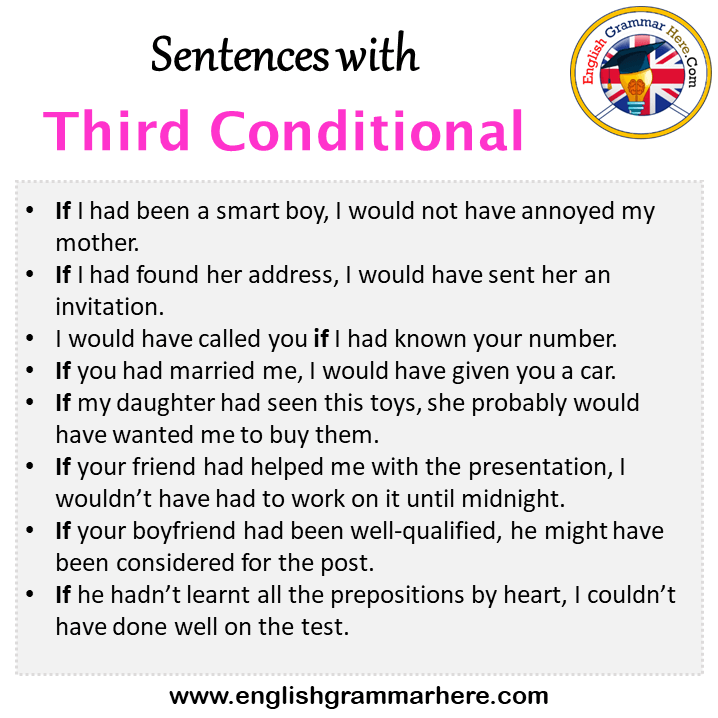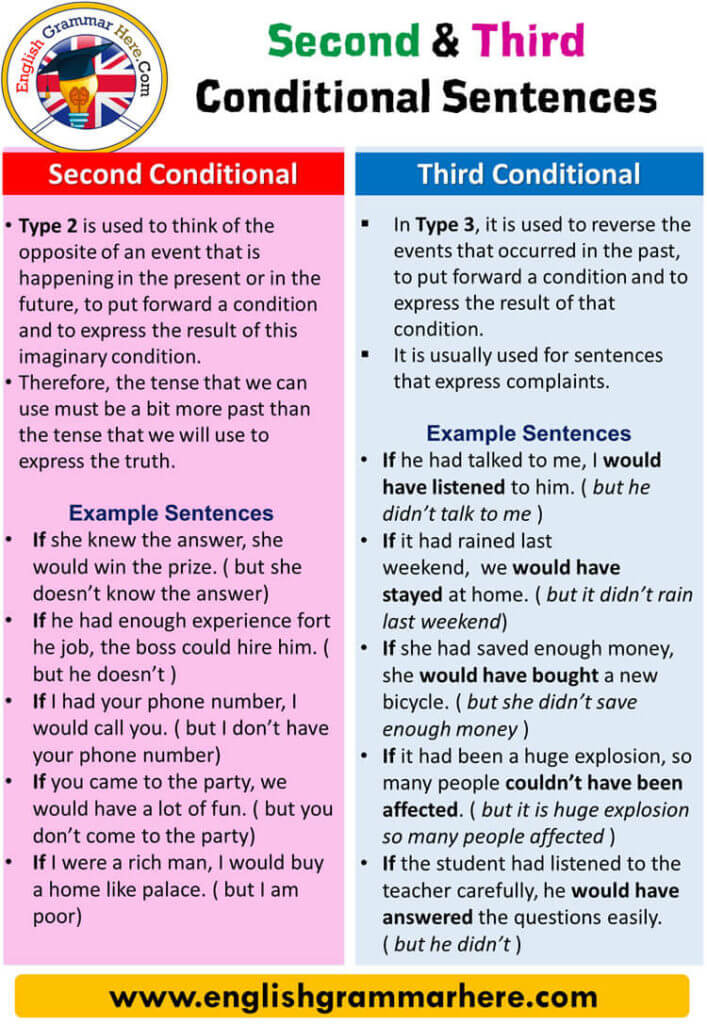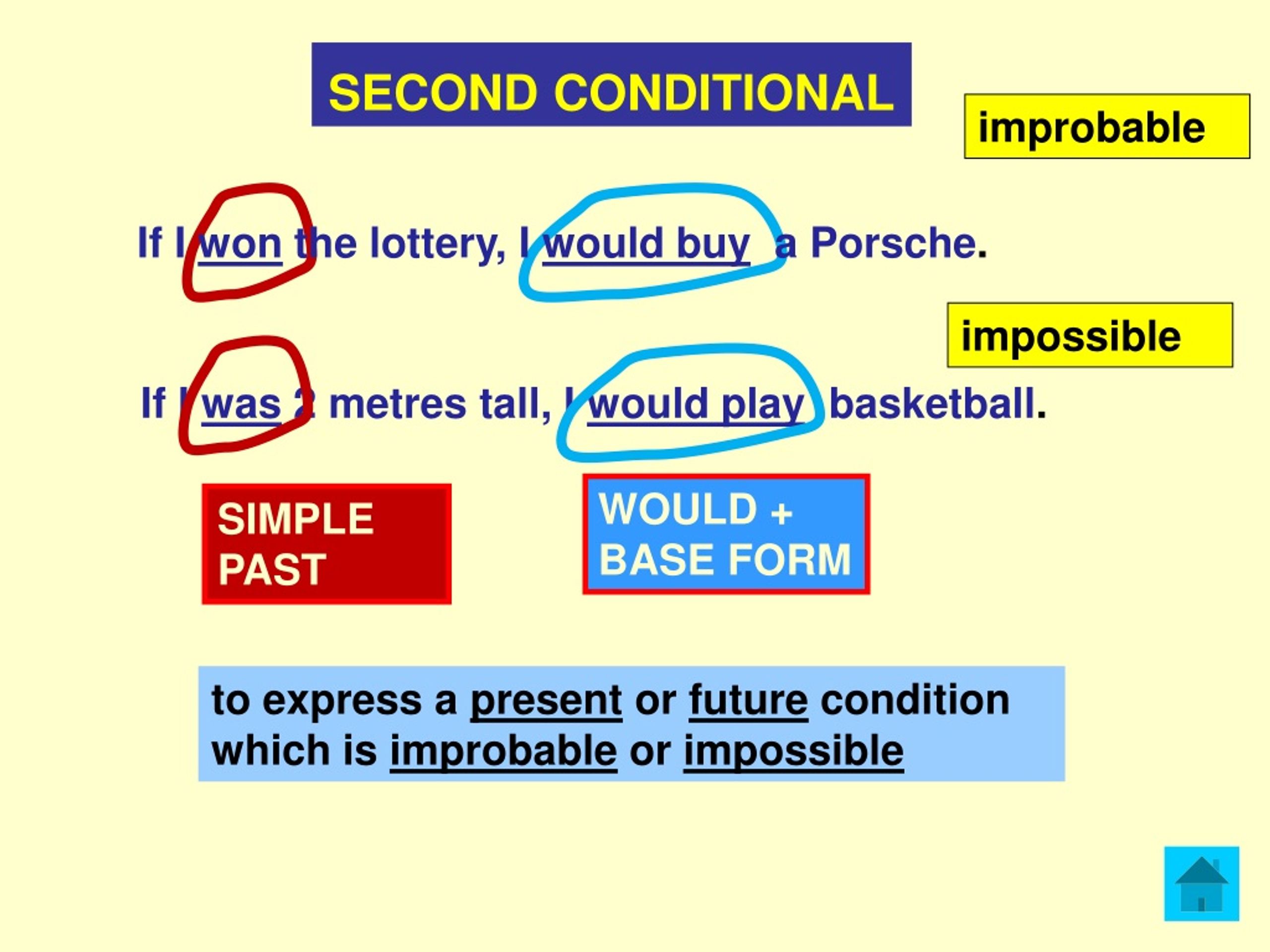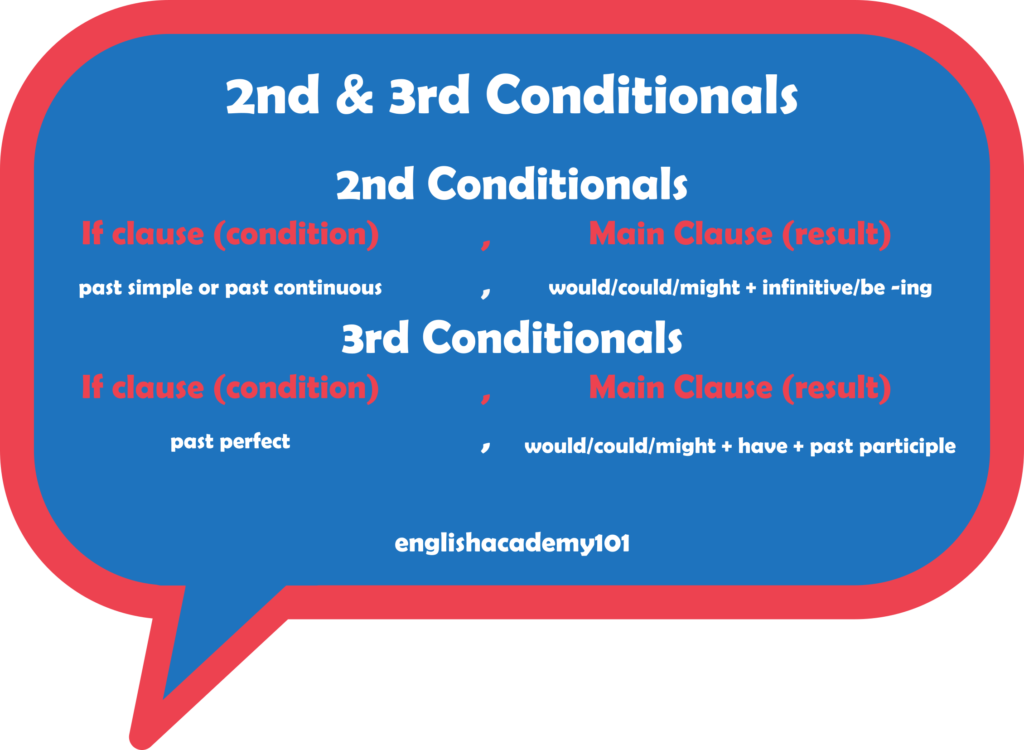
Third Conditional in 2020 English study, Get the job, Learning
The third conditional is used to express a past event that never happened. We use the third conditional to talk about unrealistic situations in the past and the hypothetical results. In such a case, neither the situation nor the result exists in the present. The situation never occurred, so the result is unattainable.

CONDITIONALS (Şart, Koşul Cümleleri) englishgrammar Learn english
The third conditional is a complex grammatical construct that describes hypothetical situations in the past or present tense. Unlike other forms of conditional, it does not refer directly to the results of specific actions but focuses on the circumstances and reactions surrounding them.

3rd Conditional
The third conditional, also known as type-III if-clause, looks back at a past situation and its outcome and imagines them as different. It is the only conditional structure that talks about the past rather than the present or future. Example: I didn't study. I didn't pass the exam. (reality)

Third Conditional cglearn.it
Perfect English Grammar We make the third conditional by using the past perfect after 'if' and then 'would have' and the past participle in the second part of the sentence: if + past perfect,.would + have + past participle It talks about the past. It's used to describe a situation that didn't happen, and to imagine the result of this situation.

Third Conditional (Grammar Review for Intermediate students
Il Third Conditional è la forma condizionale inglese (frase ipotetica di 3° tipo) che riguarda il passato. Poichè il passato in generale non è una condizione modificabile ne consegue che il third conditional indica l'impossibilità, un po' come il Second Conditional.

Sentences with Third Conditional, Third Conditional in a Sentence in
We use the third conditional (if + past perfect, would + have + past participle) to talk about something in the past that did not happen. How is the third conditional different from the other conditionals? This is the way we imagine how things could have been different in the past.

If Clause Type 2, Conditional Type 2 English Grammar Here
The third conditional focuses on a past event/situation that cannot be changed or an unreal past event/situation. Another way to think about is an event or situation that did not happen. That may seem strange. Why would we talk about something that didn't happen?

PPT READING AND USE OF ENGLISH PART 5 PowerPoint Presentation, free
To create a yes/no question in the third conditional, follow these steps: 1. Begin with the subject of the sentence. 2. Invert the subject and the auxiliary verb "would." 3. Add "have" before the past participle. For example, let's take a look at the following third conditional questions: 1.

Third Conditional PDF
The third conditional, also known as the past unreal conditional, is used to talk about a hypothetical situation in the past and its imagined outcome. It is called the third conditional because it refers to the third possible outcome or consequence of a hypothetical situation. The structure of a third conditional sentence is:

Third Conditional Definition, Useful Rules with Examples ESL Grammar
Frasi ed esempi relativi al Third Conditional. Ecco alcuni esempi del Third Conditional da leggere e acquisire maggiore familiarità con la struttura e il significato. If I'd done a postgraduate course, I could have become a specialist. If the CEO hadn't made some changes, the company would have closed..

Third Conditional (exercises) Learn english, English teaching
1 Ifyouhadcomeonholidaywithus, 2 Robwouldnthavebeentiredthismorning 3 IfJasonhadcalledme, 4 Seanwouldhavetextedyou 5 IfJanehadntboughtthatexpensivecar, 6 Kerrywouldhavewaitedforus 7 Wouldyouhaveacceptedthejob 8 Ifyouhadgotupearlier, 9 Sallywouldnthavefinishedherhomework 10 IfIhadgonetouniversity, a ifyouhadnthelpedher. b

Third Conditional Worksheet (Rewrite)
Formiamo il third conditional con una subordinata ipotetica e una proposizione principale: Subordinata ipotetica: "if" + past perfect. Proposizione principale: "would have" + participio passato. L'ordine delle frasi non importa: il significato è lo stesso. Se mettiamo la subordinata ipotetica prima della proposizione principale, usiamo una.

2nd and 3rd Conditionals in English englishacademy101
Test di livello d'inglese Verbi regolari Verbo essere in inglese Vuoi imparare tutto sul third conditional? In questo articolo ti spieghiamo la struttura, l'uso e le regole grammaticali. Inoltre, potrai chiarire tutti i tuoi dubbi con i nostri esempi ed esercizi. Cos'è il third conditional?

corso di inglese third if conditional YouTube
Exercises Complete the sentences using the third conditional. If you (look) more carefully, you (find) your house keys. 1. if-clause: past perfect|2. main clause: would have + past participle|irregular participle: find-found-found Don't worry, the dog (eat) if he (be) hungry. 1. main clause: would have + past participle|irregular participle: eat-ate-eaten|2. if-clause: past perfect|irregular.

Third Conditional Definition, Useful Rules with Examples ESL Grammar
This means that if a certain condition is true, a certain result occurs. There are four types of commonly used conditionals in the English language that are differentiated on the basis of the degree of possibility implied by each of them. They are the first conditional, the second conditional, the third conditional and the zero conditional.

Pin on 7ESL Learning English
Frasi con il third conditional: quando si usa come si forma come si forma il third conditional il periodo ipotetico del terzo tipo si forma col il past perfect nella if clause ed il perfect conditional nella main clause. If God had wanted me otherwise, He would have created me otherwise. Se Dio mi avesse voluto diverso, mi avrebbe creato diverso.